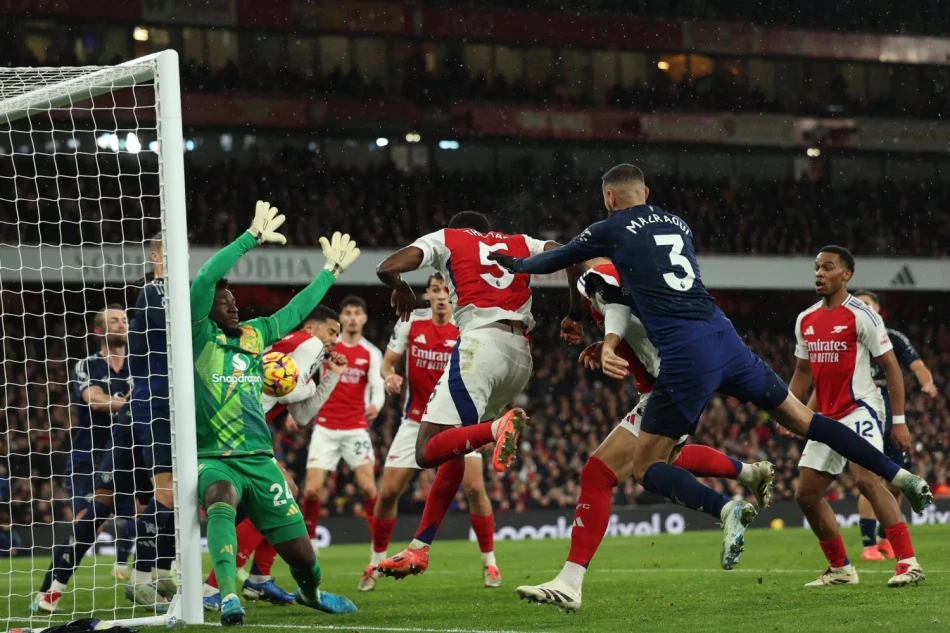
Fiery Premier League Clash: Highly Anticipated Matchup on the Horizon
Arsenal and Manchester United's Transfer Gamble: Missed Targets Set to Collide at Old Trafford
Tomorrow's Premier League clash between Manchester United and Arsenal will feature a fascinating subplot: two strikers who could have easily been wearing their opponents' jerseys. Benjamin Šeško and Viktor Gyökeres, now leading the attacks for United and Arsenal respectively, were both courted by the opposing clubs in a summer transfer window that highlighted both teams' desperate search for clinical finishing power.
The Transfer Carousel That Never Was
Arsenal's pursuit of RB Leipzig's Slovenian striker Šeško dominated headlines early in the summer transfer window. The Gunners entered into prolonged and complex negotiations with the German club, viewing the 21-year-old as the missing piece in their title puzzle. However, the deal collapsed over valuation disagreements, forcing Arsenal to pivot toward alternative targets.
Meanwhile, reports suggested Gyökeres could reunite with his former Sporting CP manager Rúben Amorim at Manchester United, creating another potential cross-London transfer saga. The Swedish striker's prolific form in Portugal had caught the attention of multiple Premier League clubs, but ultimately found his way to the Emirates Stadium.
Arsenal's Striker Dilemma: A Three-Year Itch
The Gunners' striker situation reflects a broader strategic challenge that has plagued the club since their last Premier League title in 2004. Despite finishing as runners-up in three consecutive seasons, Arsenal have struggled to find a consistent goalscoring threat up front.
The Gabriel Jesus Experiment
Brazilian forward Gabriel Jesus, signed with considerable fanfare from Manchester City, has been hampered by recurring injuries that have disrupted Arsenal's attacking rhythm. His absence forced manager Mikel Arteta into tactical compromises that may have cost crucial points in previous title races.
Havertz's Positional Puzzle
Arteta's decision to deploy German midfielder Kai Havertz as a false nine represents the kind of tactical innovation born from necessity rather than choice. While Havertz brings technical ability and work rate, his conversion rate in central attacking positions has fallen short of elite striker standards expected at title-challenging clubs.
Market Implications and Strategic Positioning
This transfer standoff illustrates the inflated striker market that has emerged post-pandemic. Leipzig's valuation of Šeško likely exceeded £60 million, reflecting the premium clubs now pay for proven goalscorers. Arsenal's reluctance to meet these demands suggests a more disciplined approach to spending, contrasting with their previous transfer strategies.
The situation mirrors similar dilemmas faced by other elite clubs. Chelsea's £100 million investment in Romelu Lukaku and subsequent loan deals demonstrate the risks of overpaying for attacking talent, while Manchester City's patient pursuit of Erling Haaland shows the rewards of strategic timing.
Tomorrow's Test of Transfer Wisdom
The Old Trafford encounter will provide immediate evidence of whether both clubs made the right decisions. Šeško's pace and physicality could exploit Arsenal's occasionally vulnerable defensive transitions, while Gyökeres' clinical finishing ability will be tested against United's improved defensive structure under their new management.
For Arsenal, this match represents more than three points—it's a measure of whether their current attacking setup can finally deliver the consistency needed to end their two-decade title drought. The irony that their solution might have been wearing red all along adds an extra layer of intrigue to what promises to be a compelling tactical battle.
Most Viewed News

 Sara Khaled
Sara Khaled






